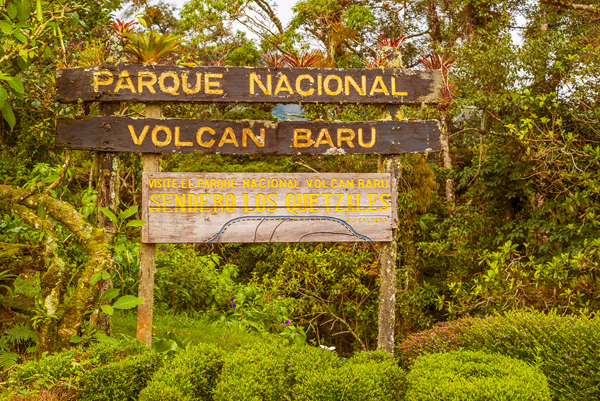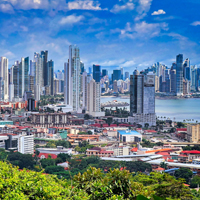Public Transportation in Volcan
Summary: Mastering the public transportation system in Volcan is a crucial aspect of adapting to life there. This article provides a detailed overview of the available local transit options.

Volcan, a serene highland town nestled in the Chiriquí Province, offers a glimpse into a more laid-back lifestyle, where the majestic Barú Volcano looms in the background. Public transportation in Volcan is not as extensive or sophisticated as what you might find in a bustling metropolis like New York City. Here, the primary modes of public transit include rural buses, known locally as "colectivos," and a fleet of taxis. These services connect residents and visitors to nearby towns and essential services. For expats considering a move to Volcan, the question of whether one can live comfortably without a car largely depends on lifestyle preferences and daily needs. While the town is walkable and the public transportation can cover basic travel requirements, those seeking more freedom to explore or with a need for regular, extensive travel may find owning a car more convenient.
Buses (Colectivos)
In Volcan, the bus system operates on a less frequent schedule compared to larger cities. The colectivos are the lifeline for many locals, providing affordable transportation between Volcan and surrounding areas such as David, the province's capital, and Cerro Punta, a nearby farming community. These buses are typically old school buses that have been given a second life in Panama. While they may not boast the latest in comfort or technology, they are a reliable means of getting around for those who do not mind a bit of adventure and a less-than-predictable schedule. Safety is generally not a concern during the day, but services can be sparse at night, and it is advisable to plan travel for daylight hours. Fares are inexpensive, often costing only a few dollars for a trip, making it a cost-effective option for residents and travelers alike. However, expats should be prepared for a more communal travel experience, as these buses can become quite crowded and are a far cry from the privacy of a personal vehicle.
Taxis
Taxis in Volcan offer a more direct and private mode of transportation compared to buses. They are readily available and can be hailed on the street or arranged by phone. Taxi fares in Volcan are reasonable, but it's always a good idea to agree on the price before starting the journey to avoid any confusion upon arrival at your destination. Taxis provide a safer option for night travel, although it's still recommended to be cautious and use well-known taxi services, especially for solo travelers or women traveling alone. For expats without a car, taxis can fill the gaps left by the bus system, especially for trips that require leaving early in the morning or returning later in the evening. They also offer the flexibility to travel to locations that are not served by the bus routes.
While Volcan does not have a subway system, its public transportation options, though limited, are generally considered safe and can be relied upon for basic travel needs. The town's small size and the concentration of amenities make it possible for residents to walk to grocery stores, restaurants, and local shops. For those living in the town center, walking combined with occasional bus and taxi rides can suffice for daily life without a car. However, for expats who wish to explore the beautiful landscapes of Chiriquí, venture out to more remote areas, or who require more flexibility and comfort, having a personal vehicle would enhance the living experience. Owning a car in Volcan provides the freedom to discover the region's hidden gems, from coffee plantations to hot springs, at one's own pace and schedule.
In conclusion, while public transportation in Volcan, Panama, is not as extensive as in larger cities, it is possible for expats to live without a car, especially if they reside in the town center and have a simple routine. The combination of buses, taxis, and walking can meet basic transportation needs, but for those seeking greater independence and the ability to explore, a car would be a valuable asset. As with any location, the choice of whether to rely on public transportation or to own a vehicle depends on individual lifestyle preferences and the level of convenience one desires.
About the Author
 Joshua Wood, LPC joined Expat Exchange in 2000 and serves as one of its Co-Presidents. He is also one of the Founders of Digital Nomad Exchange. Prior to Expat Exchange, Joshua worked for NBC Cable (MSNBC and CNBC
Primetime). Joshua has a BA from Syracuse and a Master's in Clinical and Counseling Psychology from Fairleigh Dickinson University. Mr. Wood is also a licensed counselor and psychotherapist.
Joshua Wood, LPC joined Expat Exchange in 2000 and serves as one of its Co-Presidents. He is also one of the Founders of Digital Nomad Exchange. Prior to Expat Exchange, Joshua worked for NBC Cable (MSNBC and CNBC
Primetime). Joshua has a BA from Syracuse and a Master's in Clinical and Counseling Psychology from Fairleigh Dickinson University. Mr. Wood is also a licensed counselor and psychotherapist.
Some of Joshua's articles include Pros and Cons of Living in Portugal, 10 Best Places to Live in Ireland and Pros and Cons of Living in Uruguay. Connect with Joshua on LinkedIn.
Additional Information:
- Expat Guide to Volcan
- Best Markets in Volcan
- 7 Tips for Living in Volcan
- Pros & Cons of Living in Volcan
- Health Care in Volcan
- The Essential Guide to Volcan
- Cost of Living in Volcan
- Healthcare & Health Insurance in Panama
- Best Places to Live in Panama
- Real Estate in Panama
- 10 Cultural Faux Pas to Avoid While Living in Panama
- Pros and Cons of Living in Panama 2025
- 2025 Guide to Moving to Panama
- More Advice about Retiring in Panama
- Members Talk about the Cost of Living in Panama

IMG_0016.jpeg)
Legal-Services-in-Panamá-MPU.jpg)
